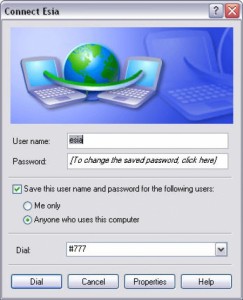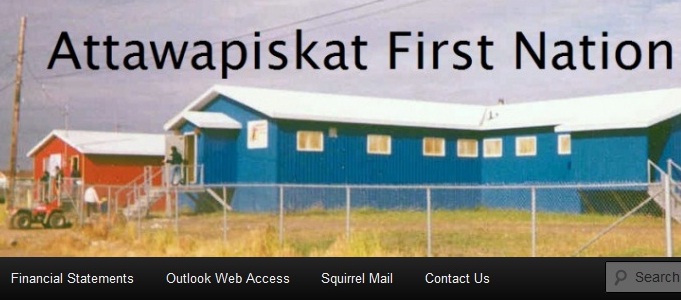Some people in the NDN tumblr community have coined a new meaning for the acronym NATO. Forget the imperialism, there is no room for that in the new NATO. Now it means Native Americans Take Over.
There are a lot of concepts this acronym can stand for, but right now it makes me think about the presence of native peoples on the internet.
Some technology has been very slow to reach our communities, particularly those in the north where certain kinds of infrastructure is prohibitively expensive to build and maintain. Some communities still run on dial-up internet connections, a thing that most southern kids probably haven’t even heard of! Cell phone service continues to be spotty once you’re north of Edmonton. For much of the southern population, only having access to a computer via a youth centre or a public library is an antiquated notion, but until very recently (and in some areas this remains true, even outside the north) this was literally the only option for a lot of us.

In the old days, there were elaborate ceremonies involving 'handshakes' required before you could connect to the internet.
That absence due to a lack of access has had a palpable effect on the kinds of information and resources ‘out there’. Indigenous voices have not been particularly represented online, in social media or elsewhere. I’ve had spotty access myself over the past 10 years, but during that time I have consistently scoured the interwebs for resources, particularly linked to language development.
The pickings were pretty slim. Until now.
The last two years alone has resulted in an explosion of authentic indigenous language and culture resources on the web… and by authentic I mean ‘actually produced by native communities’. My list of ‘indigenous bookmarks’ grew from a handful of sites, to a list it now takes me forever to scroll through. There is so much new stuff going up that I’m struggling to find the time to review everything and put it up here. Unfortunately, the digital divide still exists, but the gap is narrowing quickly.
We’ve also taken to social media in a way that should surprise no one who is familiar with native peoples. As I’ve noted before, traditions are not technology dependent. We have always had an amazing series of informal networks to pass along information. That this now involves social media is irrelevant to the tradition of interconnectedness. By the way kids, FBI used to mean something besides “Facebook Indian”!
Satellite internet connection, widening cell-phone coverage and the plunging cost of personal computing devices has finally made these platforms more accessible to us. We’ve been quick to use these technologies to our advantage, which again should surprise no one who is familiar with the ways in which our cultures have always integrated new technologies into our traditions.
Access is a serious obstacle to the development of online resources and communities. It doesn’t matter how fantastic your website or online learning platform is when you can only reach a very small percentage of your native audience. But the tide is turning.

Tens of thousands of Canadians who never even heard of Attawapiskat until recently, have visited this community site in the past few months.
More importantly, the access we now have is not mediated or funnelled through non-natives. It’s no longer the case that we are merely being talked about. Now natives are talking to one another. Interconnections are being made and strengthened. Inaccuracies are being directly challenged. Most non-aboriginal people may still never step foot on a reserve or a Settlement, but pretty much every native community has a community website now.
Some argue that having so much more information online means it will be easier for fakes and profiteers to rip us off. I would argue it also makes it much more difficult for that kind of person to get away with it.
Take heed, Mr. Shaman Starshine Blanket Glowing Feather. The NDNs are online now, and when you claim to be a member of the Seneca Nation of Alaska, you’re going to get called out on it.


6 Comments
Sharon Jackson · February 20, 2012 at 11:59 am
This blog gives me hope, and yet the number of Coast Salish in my community who live in abject, grinding poverty tells me there are still a million miles to go. There is a huge % of them that could not afford a computer if they wanted to. The Youth Centre or the Library are options, but if you cannot get training on how to use computers, what is the point?
Further, Canada pays the highest cell phone charges in the world. That, too will have to change. There is something amiss when you can see a farmer in India talking on a cell phone, but having the same phone here would cost anyone 1000% more.
âpihtawikosisân · February 20, 2012 at 12:59 pm
Lack of access remains a serious impediment in many communities. I’ve got a lot more to say on the subject that I want to explore in subsequent blog posts. In so many communities basic needs are not being met, yet at the same time increasing access to social media means that it’s harder to hide this deplorable situation. I wonder sometimes if we say, “potable water first, internet second” or if we say “we need them both NOW” so that our voices can no be so easily silenced?
Sharon Jackson · February 20, 2012 at 2:14 pm
Well, if we had to choose between a sick child from unclean water and internet access, the choice would be clear. I agree communities need both potable water and internet access, but in my view child mortality and health trump the internet every time. It must be difficult to know how to proceed on so many fronts.
âpihtawikosisân · February 20, 2012 at 2:58 pm
Access to the internet is certainly not as important as the basic necessities of life, and it’s beyond shameful that this country has allowed those needs to go unmet.
Emo · February 20, 2012 at 12:02 pm
Off-topic, and yet right on topic, I send this because I know you’ll want to read this: here the author of American Holocaust: Columbus and the Conquest of the New World defends his use of the terms “genocide” and “racism” against a reviewer who claims that these have no applicability to the period of history in question.
http://www.nybooks.com/articles/archives/1993/oct/21/american-holocaust/
I can’t say that I’ve ever taken an interest in the work of David E. Stannard before this moment, but I have a soft spot for hard studies of historical demographics, and I might find his peer reviewed articles more sympathetic than his popular publications for that reason. Case in point:
During the past fifty years few subjects of historical consequence have been more controversial than that of the population history of the American Indian. At one extreme, in 1939 Alfred L. Kroeber estimated the population of pre-Columbian North America at about 900,000. At the other extreme, in 1983 Henry F. Dobyns estimated it at about 18,000,000. Since the total North American Indian population by the early twentieth century was no more than 350,000 to 450,000, the human question concealed in the statistical controversy is staggering: did the North American Indian population decline by a ratio of about 2 to 1 between the end of the fifteenth century and the end of the nineteenth century – or did it decline by 50 to 1 ? Or more?
http://journals.cambridge.org/action/displayAbstract?fromPage=online&aid=3222080
Bruce · February 21, 2012 at 12:06 pm
tan’si,
Last night, Adler on the sunnew satellite channel mentioned the word “genocide” in reference to the Oxycontin epidemic in the Northern Ontario communities. he went on on to explain and give different examples of how the government and other agencies have isolated and continue to control and manipulate First Nations. It is the first time i have heard main stream news use the term genocide in reference to FN’s Kudos to Adler and other mainstream news agencies for educating the public. Also, I thought his presentation was genuine and sincere.